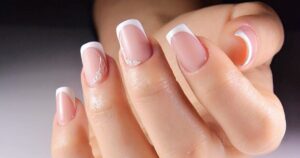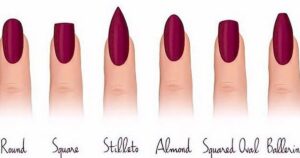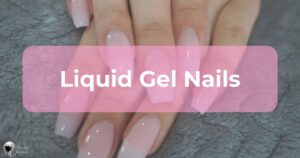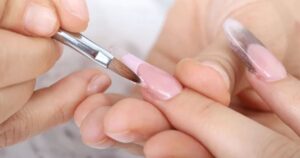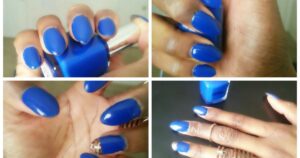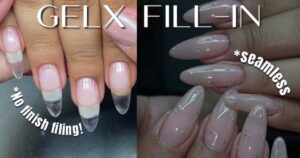It is your hair that defines your appearance. It is important to take care of it to maintain its health and shine. The health of your hair depends on its protein content. One essential component of hair health is protein. Protein plays A crucial role in our hair’s development and growth. Yet, how can we determine if our hair requires protein? We will explore the signs that show your hair may need protein and how to address this issue.
Have you noticed your hair becoming brittle and weak? Experiencing excessive hair breakage or struggling with split ends and frizz? These could be clear indications that your hair is lacking protein. Understanding how to know if your hair needs protein is a crucial part of maintaining its health and vitality. By doing so, you can replenish your hair’s protein levels. This restoration process helps to restore your hair’s strength and shine.
There are various ways to assess your hair’s protein needs. One method is the hair porosity test, where you place a strand of hair in water to determine how it sinks. Additionally, evaluating your hair’s texture and appearance can offer valuable insights. Consider protein treatments if your hair lacks elasticity and appears dry and dull.

Understanding the Role of Protein in Hair Health
The Significance of Protein for Hair
Protein is essential for the structure and growth of your hair. Hair comprises a protein called keratin, which provides strength and durability. With enough protein, your hair may become vital, brittle, and prone to breakage.
Functions of Protein in Hair Structure and Growth
Protein handles maintain the integrity and strength of your hair. The protein binds to the hair cuticle and cortex. It provides structure and safeguards the hair against environmental damage. It also contributes to hair growth by providing the amino acids to produce new hair cells.
Common Causes of Protein Deficiency in Hair
Your hair can lack protein for a variety of reasons. Chemical treatments strip hair of natural protein. As a result, the hair may lose its natural protein, leaving it vulnerable and lacking in strength. Curling irons and flat irons can damage hair when heated. This damage can lead to a depletion of protein content in the hair. Poor nutrition, including a protein-deficient diet, can contribute to hair protein deficiency. Inadequate protein intake can lead to protein deficiency in the hair.
Signs Your Hair May Be Lacking Protein
- Brittle and Weak Hair: If your hair feels dry, brittle, and lacks elasticity, it may be a sign of lacking protein. Hair that is low in protein is more prone to breakage and splitting.
- Excessive Hair Breakage: Indicates that your hair is weak and lacks protein. Consider protein treatments if you experience excessive hair shedding or breakage. These treatments can help replenish protein levels and promote healthier, stronger hair.
- Lack of Elasticity: Hair low in protein lacks elasticity, making it stiff and rigid. If your hair feels rough and inflexible, it may be a symptom that it needs more protein.
- Split Ends and Frizz: Split ends, and frizz are common signs of protein deficiency in the hair. When hair lacks protein, the cuticles become damaged and prone to splitting. This leads to frizz and flyaways in the hair.
- Difficulty in Retaining Length: Slow hair growth and difficulty retaining length can be signs of protein deficiency. Lack of protein can affect hair growth and length retention. Protein is crucial for hair growth. Without it, hair can become stagnant and brittle, hindering its ability to grow.

Assessing Protein Levels in Your Hair
The Hair Porosity Test
The hair absorbency test is a simple way to assess your hair’s protein content. This test involves placing a strand of hair in a glass of water and observing how it sinks to the bottom. If your hair falls, it may be low in protein. Hair that floats for a longer period mayor show a higher protein content.
Evaluating Hair Texture and Appearance
Determining your hair’s protein content by texture and appearance is also possible. Hair that is dry, brittle, and lacks shine may be low in protein. In contrast, hair that is smooth, shiny, and soft may show a healthy protein balance.
Professional Hair Analysis Options
Consider a professional hair analysis for accurate protein content assessment. Hair salons and beauty supply stores provide hair analysis services. These services can determine the specific protein requirements of your hair. These analyses involve a microscopic examination of your hair strands. This examination helps determine the condition and protein levels of your hair.
Importance of Seeking a Hair Care Professional’s Advice
Seeking advice from a hair care professional is crucial. They can provide valuable guidance in assessing the protein needs of your hair. They offer personalized recommendations based on your hair type, condition, and protein requirements.
Protein Treatments for Your Hair
Benefits of Protein Treatments
Protein treatments offer many benefits for your hair. They help replenish lost protein, strengthen the hair shaft, and improve hair health. Protein treatments can restore moisture balance, reduce breakage, and enhance hair elasticity.
Different Types of Protein Treatments Available
- Hydrolyzed protein treatments contain small proteins that can penetrate the hair shaft. These treatments repair and strengthen the hair from within, providing long-lasting results. Look for hydrolyzed keratin, collagen, or silk protein treatments for optimal nourishment
- Natural protein treatments include eggs, yoghurt, avocado, and mayonnaise. You can enhance the protein content of your hair using these active ingredients. Homemade therapies can provide effective and affordable options for those seeking natural alternatives
- A more personalised approach would be to create your own DIY treatments. Use protein-rich oils, aloe vera gel, or rice water for active results. These treatments allow you to tailor the protein content. Choose the level of protein treatment and care products in your hair.
Balancing Protein and Moisture in Hair Care
Importance of Balancing Protein and Moisture
Balancing protein and moisture is essential for maintaining healthy hair. Too much protein can make your hair stiff and brittle, while too much humidity can make it weak and limp. Achieving an equilibrium that suits your hair type and requirements is essential.
Decoding Hair Moisture Absorption
Your hair can absorb and keep moisture and nutrients. Understanding your hair porosity can help determine your hair’s protein and moisture needs.
Tips for Balancing Protein and Moisture
- Use protein-rich products in moderation to avoid overloading your hair with protein.
- Avoid excessive heat styling and chemicals that deplete hair moisture.
- Use moisturizing products like deep conditioners or leave-in conditioners for proper hydration.
- Consider using a hair mask or treatment formulated to balance protein and moisture.
- Observe your hair’s response and adjust your routine for the ideal protein-moisture balance.
FAQ’S
What does hair look like when it needs protein?
It looks dry, brittle, and weak, with excessive breakage, lack of elasticity, and split ends.
How do you know if your hair is protein?
Observe your hair’s response and adjust your routine for the ideal protein-moisture balance.
Does curly hair need moisture or protein?
Curly hair usually needs more moisture than protein.
How can I increase protein in my hair?
To increase hair protein, use protein-rich products and treatments.
What causes a lack of protein in hair?
Heat styling, chemicals, environment, and poor diet can cause protein deficiency in hair.
Conclusion
In conclusion, do you know how to know if your hair needs protein? It is crucial for maintaining its health and strength. Recognising signs of protein deficiency, such as brittle hair, breakage, and split ends. It’s time to prompt you to take action. By increasing protein levels, you can restore the health of your hair. Restoring protein balance is crucial for strong and healthy hair. You can achieve this with protein-rich hair products, treatments, or a balanced diet.
Remember to seek professional advice when needed. Hair care specialists can provide personalised recommendations. It’s always based on your hair type and condition. By incorporating protein treatments, you can promote the health of your hair. Additionally, maintaining a healthy protein-moisture balance further enhances its vitality and strength. Take proactive measures to care for your hair. This will help you enjoy luscious, robust locks that radiate beauty and confidence.

